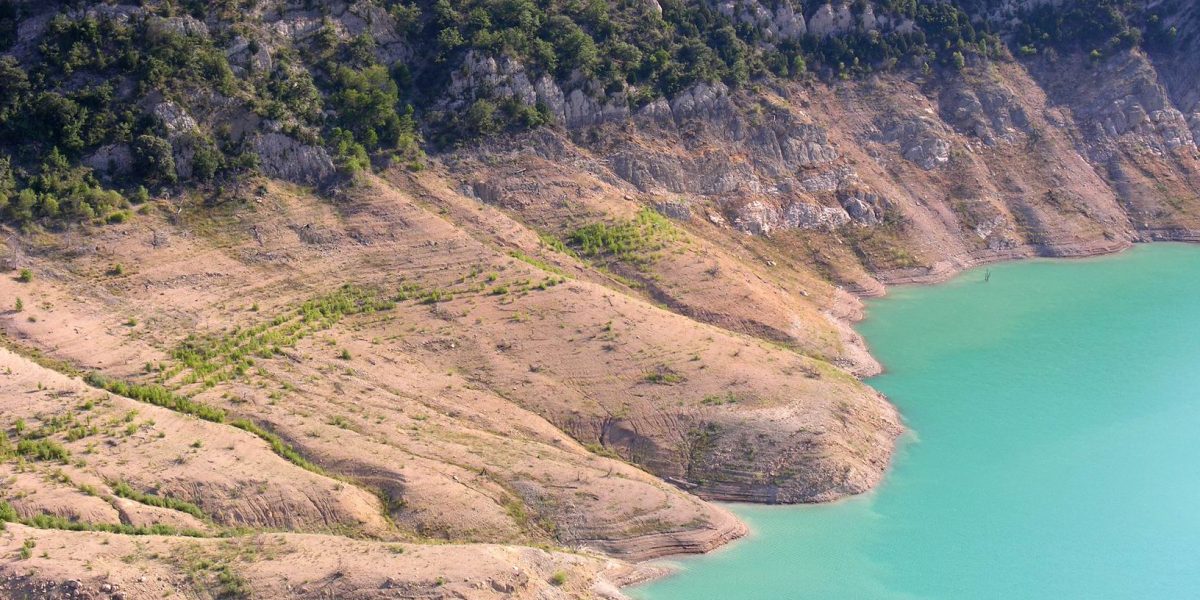On Tuesday, February 28, the Executive Council of the Generalitat de Catalunya agreed to reduce the amount of water destined for agricultural, industrial and urban irrigation. This restriction will affect more than 200 municipalities in 15 counties that have become in the exceptional phase, a situation prior to the most critical scenario according to the Traffic Light of the Drought of the Govern. Thus, around six million Catalans will be affected by the consequences of the lack of available potable water. Currently, the most affected areas are those surrounding the Ter and Llobregat rivers, and the Fluvià-Muga aquifer.
After a meeting with the commission in charge of monitoring the drought that affects much of the country, Patricia Plaja, spokesperson of the Government, together with Teresa Jordà, the councilor of the Departament d’Accio Climatica, Agricultura i Agenda Rural (DACC), announced the decision of the Generalitat de Catalunya. According to the commission’s analysis, the most prominent measures and restrictions are as follows:
- 40% reduction in water use for agricultural uses.
- 15% reduction in water use for industrial uses.
- Irrigation prohibited in public and private parks and gardens: only the use of water is allowed to keep plants alive and should be done with a watering machine.
- Prohibited the irrigation of grass in areas that are not intended for the federated practice of sport or that do not use rainwater or sewage treatment plants.
- Prohibited to clean the streets with potable water.
- Reduction of the filling of fresh water pools to the minimum of sanitary quality guarantee: in schools it applies to removable pools of less than 500 liters.
- Reduction of the daily water limit per inhabitant: 230 liters/per day.
As explained by Plaja and Jordà, after registering almost 25 months without heavy rains, the state of the reserves stands at 27% of its capacity. This situation has forced the implementation of measures “to avoid a lack of supply of potable water throughout the territory”. From the Generalitat, they assure that “we are approaching the spring with a volume of reserves below the ideal, that is why they are going to launch drought wells and promote the use of water from the treatment plants”.
Today, the Board of Directors of the Catalan Water Agency (ACA) will officially approve the entry into force of these measures and the corresponding sanctions in case of non-compliance, that can be applied once the decree is registered in the Official Journal of the Generalitat de Catalunya (DOGC). For the moment, the ACA and the Government have made public a poster with the restrictions applicable in areas with an orange traffic light (state or scenario of exceptionality).


